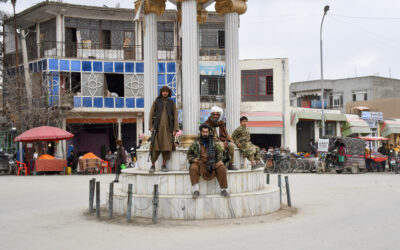Russians are fond of saying “men’she znayesh, dol’she zhivyosh,” translated as, “the less you know the longer you live.” President Vladimir Putin’s formative experience serving as a KGB officer and Director of the FSB explains why the Kremlin seeks to impose cyber sovereignty within its own borders while deploying more traditional Soviet/Russian espionage tactics to limit the flow of information and shape public dialogue within Russia and from Russia to the outside world.
Putin also holds a black belt in judo, a key principle of which is to use an opponent’s strength against them. Applying this judo technique to Russia’s strategic relationship with its stronger rival and “main enemy” the United States, Putin has targeted our open democratic institutions—the core of our strength as a nation—with a sophisticated array of intelligence operations.
Putin has sought to exploit open and free U.S. cyberspace, which serves as a force multiplier for commerce and freedom of expression, with hacking and influence operations. His intelligence officers are mounting a worldwide human intelligence (HUMINT) full court press targeting the United States.
Putin deliberately ordered the reduction of U.S. diplomatic mission staff by 755 employees in response to the new U.S. sanctions designed to punish Russia for interfering in the U.S. 2016 election. Putin indicated he could have countered with other measures but chose to impose a level of reciprocity on the complement of our respective diplomatic missions.
Based on my experience of having worked in Russia, reciprocity appears to be a public cover story designed to conceal Putin’s true motive. His sight set on March 2018 when he will stand for election again, Putin purposely sought to degrade the U.S. mission’s ability to track Russia’s internal politics, especially its next presidential election.
Along with the Russian domestic election monitor Golos and Organization for Security and Cooperation in Europe (OSCE) election observers, the U.S. Embassy staff in Moscow and the consulates closely followed Russia’s parliamentary election of 2011 and presidential election of 2012, both of which Russian and international observers condemned as fraudulent. Following the elections, protesters demonstrated on Russia’s city streets while Putin reverted to the Russian/Soviet pretext of accusing the U.S. of trying to instigate a color revolution to drive Russia into chaos.
Putin was seeking to marginalize his domestic Russian opponents, many of whom risked their lives by protesting in Russia’s city streets, by falsely declaring them a fifth column that was doing the bidding of Russia’s external nation-state enemies, including NATO and the United States.
According to a State Department 2013 Inspector General report, the U.S. Moscow embassy and consulates in St. Petersburg, Yekaterinburg, and Vladivostok employed about 1230 staff, including 930 locally employed Russian staff and 300 U.S. citizens. Russia is requiring the U.S. total number of staff, including Russians, be reduced to the number of Russian officials serving in the U.S.—455—by September 1. The Russian embassy and its consulates in the U.S. do not employ American local staff.
The U.S. government will need to determine how to divide these significant cuts among the 35 U.S. government agencies with representatives in Russia. We can be sure the U.S. mission will suffer a loss of substantive expertise and administrative support at our embassy and consulates in Russia.
Seventy years ago, legendary U.S. diplomat George Kennan, using the pseudonym “Mr. X,” published “The Sources of Soviet Conduct” in Foreign Affairs. Drawing on deep substantive expertise from having served in Moscow and the region, Kennan outlined the policy of containment, which became the foundation for U.S. Cold War strategy. One year prior while serving as Charge of the Moscow embassy, Kennan wrote the “long telegram,” which outlined the themes on which he expounded in the Mr. X article.
Following in Kennan’s tradition, generations of U.S. officials serving in Russia have immersed themselves in Russian culture, language, and politics. They have been the experts on whom successive administrations relied to understand the truth inside the country Churchill called a “riddle wrapped inside an enigma.” They have been the most astute observers of Russia’s political and economic development. Putin’s counter move to U.S. sanctions appears to follow in the KGB tradition of seeking to sow discord and inefficiency in the mission of the Kremlin’s “main enemy” with an eye towards continuing to mask Putin’s opaque rule and corrupt politics.
Putin considers the U.S. an existential threat to Russia’s national security. He speaks harshly of the military threat ostensibly emanating from NATO but only to conceal what threatens most his regime security: the spread to Russia of Western ideals of liberty, freedom, and democracy.










